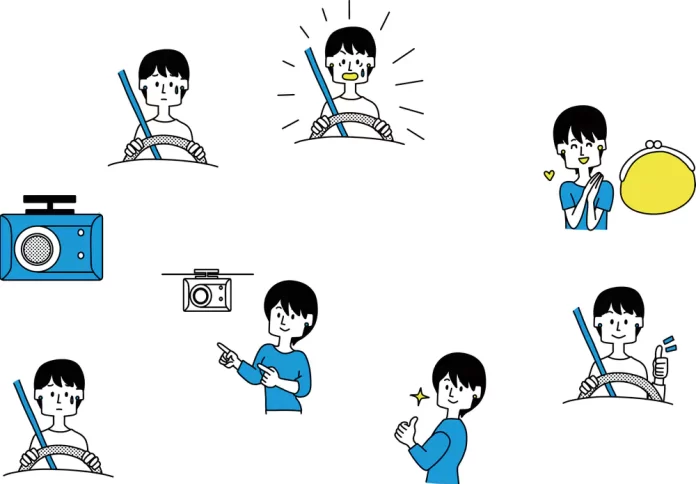
Driving anxiety, also known as driving phobia or vehophobia, is a type of anxiety disorder that affects many people. It is characterized by intense fear or anxiety about driving or being a passenger in a vehicle. The question is, do I have driving anxiety? Should I take the quiz?
In some cases, the fear may be specific to certain driving situations, such as driving on highways, bridges, or tunnels or in heavy traffic or bad weather. In other cases, the fear may be more generalized and affect all aspects of driving.
Symptoms of Driving Anxiety

The symptoms of driving anxiety can vary from person to person, but they typically include one or more of the following:
Physical symptoms
These may include sweating, trembling, racing heartbeat, palpitations, shortness of breath, chest pain, nausea, dizziness, or fainting.
Cognitive symptoms
These may include excessive worry, negative self-talk, catastrophic thinking, or obsessive thoughts about driving or accidents.
Behavioral symptoms
These may include avoidance of driving or certain driving situations, reliance on others for transportation, or using coping mechanisms such as alcohol or medication.
Checking do I have driving anxiety quiz

If you suspect that you may have driving anxiety, the following questions may help you assess your symptoms and determine the severity of your anxiety:
- Do you experience any of the following physical symptoms when you think about driving?
a) Racing heartbeat or palpitations
b) Sweating or trembling
c) Shortness of breath or difficulty breathing
d) Nausea or stomach discomfort
e) All of the above
f) None of the above
- Do you avoid driving or certain driving situations due to fear or anxiety?
a) Yes
b) No
- When you do drive, do you experience any of the following symptoms?
a) Panic attacks or intense anxiety
b) Difficulty concentrating or focusing
c) Uncontrollable shaking or trembling
d) All of the above
e) None of the above
- How often do you experience driving anxiety?
a) Almost every time I drive
b) Sometimes, but not always
c) Rarely or never
- Have you ever been in a car accident or witnessed a car accident that has contributed to your fear of driving?
a) Yes
b) No
You may have driving anxiety if you answered “yes” to any of the above questions. It’s important to seek professional help if your anxiety affects your daily life or functioning or if you cannot manage your symptoms alone. Treatment options may include cognitive-behavioral therapy, exposure therapy, medication, or a combination.
Also read about: Are Yoga Mats Made Of Latex?
How can I overcome driving anxiety?

Driving anxiety can be a challenging condition to deal with, but several strategies can help you manage and eventually overcome it. Here are a few tips that may help:
Seek professional help
If your driving anxiety is severe or interfering with your daily life, seeking professional help is important. A mental health professional can help you identify the underlying causes of your anxiety and develop a treatment plan tailored to your needs. Treatment options may include cognitive-behavioral therapy, exposure therapy, medication, or a combination.
Practice relaxation techniques
Learning relaxation techniques such as deep breathing, progressive muscle relaxation, or visualization can help you manage your anxiety symptoms while driving. Practice these techniques regularly to help you feel more calm and centered behind the wheel.
Gradual exposure
Gradually exposing yourself to the situations that trigger your anxiety can help you overcome your fears over time. Start by practicing in low-stress driving situations and gradually work up to more challenging situations. It’s important to take things at your own pace and not push yourself too hard too quickly.
Practice positive self-talk
Negative self-talk can fuel anxiety and make it harder to overcome. Practice positive self-talk by reminding yourself of your driving skills and strengths and focusing on your successes rather than your perceived failures.
Get support
Talking to friends and family about your anxiety can help you feel less alone and more supported. Consider joining a support group for people with driving anxiety, or find an online community where you can connect with others going through similar experiences.
FAQs
Conclusion
In conclusion, driving anxiety is a common condition that can affect anyone, regardless of their driving experience or background. Symptoms of driving anxiety can include physical, cognitive, and behavioral symptoms and can vary in intensity from mild to severe. If you suspect that you may have driving anxiety, it’s important to seek professional help and support to manage your symptoms and regain your confidence behind the wheel.
The quiz provided in this article is a helpful tool for assessing your symptoms and determining the severity of your anxiety. If you answered “yes” to any of the questions, it might be a sign that you have driving anxiety, and it’s important to seek professional help to manage your symptoms.

